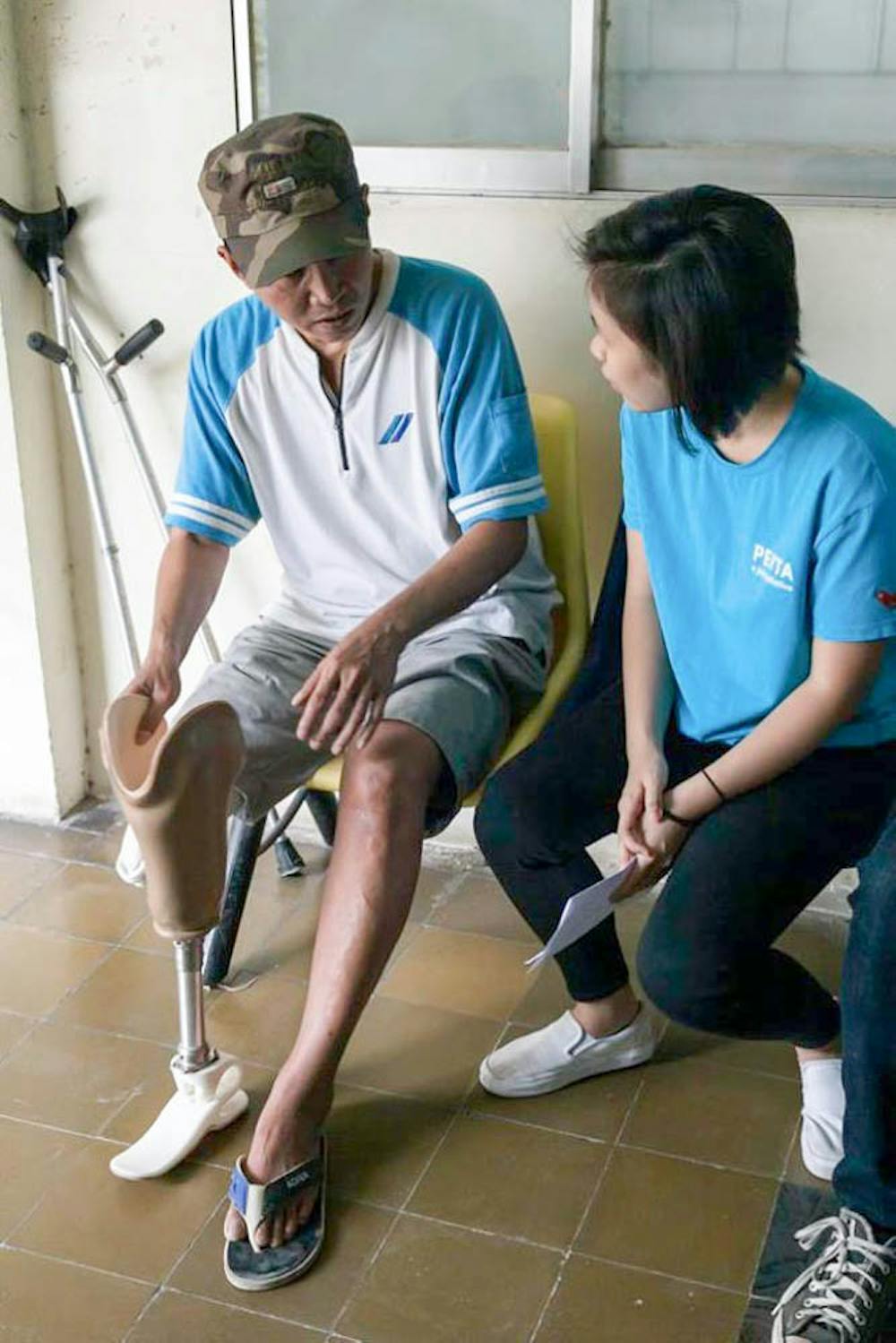If a war veteran in Vietnam seeks to buy a prosthetic leg, he will often be met with disappointment. Prosthetics in Vietnam typically cost upwards of $2,000, and the average annual income in Vietnam is around $1,700.
Seeing the difficult life that amputees faced around her hometown of Ho Chi Minh City, Trang Duong ’18 decided to help reduce the cost of providing care for amputees.
Duong, along with her co-founder Victor Wang, an undergraduate at Yale, started Penta, an organization that brings donated prosthetics from the United States to Vietnam, where they are refitted for amputees. Penta charges $200 for this process, a more than tenfold reduction in cost.
In order to get supplies, Penta collects prosthetics from clinics as well as from individuals. Used prosthetics cannot be reused or resold within the United States, forcing clinics and individuals to hold onto their old ones, Duong said. This creates an essentially free supply of prosthetics that would otherwise cost thousands of dollars to purchase. While the organization is currently focusing on clinics in Connecticut and Rhode Island, it hopes to expand its partnerships to clinics around the country. Wang — who focuses on the U.S. operations for Penta — said that the nonprofit hopes to streamline the process and expand options for individuals to donate through the website.
When individuals donate to Penta, they are able to track the prosthetic on its journey to Vietnam. The donator is eventually sent a profile of the recipient in Vietnam, an aspect of the process that appeals to many, Duong said. Many individuals have a strong emotional connection to their prosthetic and like to know where it is going, Wang said.
Duong focuses on the side of the business that occurs in Vietnam, coordinating relationships with local doctors and hospitals as well as finding, interviewing and selecting amputees to receive the prosthetics. Duong’s time in the city as well as her understanding of life in Vietnam has allowed her to better navigate the process, she said.
Penta has already fitted dozens of people with prosthetics and hopes to complete an additional 200 fittings this summer. The organization hopes to scale up that number in the future, using this summer’s fittings as a trial run for a larger operation.
In addition to providing prosthetics for amputees, Penta aims to alleviate the stigma against the amputee community within Vietnam. This past summer, the organization ran a program for high schoolers in the country, educating students on the difficulties that amputees face with the hope that these students would advocate on behalf of the community in the future. Penta will run the program again this summer, Duong said, as the last trip was very successful.
Wang said his time at Penta has given him many “personal and emotional” experiences, both in the United States and Vietnam. He said that it was powerful to interact with people who had such interest in the fate of the prosthetics and to see the transformative effects of their work in Vietnam. Yuri Lee, a Rhode Island School of Design student and photographer for Penta, said that her time with Penta has enabled her to use her skills as a photographer to help make an impact, something that she hopes to achieve once she graduates in June as well.
Duong is currently a Social Innovation Fellow through the Swearer Center for Public Service. The fellowship has helped provide support for growing Penta and offered helpful feedback and ideas for the organization, Duong said.
While Penta has operated largely on various grants received from Brown, Yale, the Clinton Foundation and a variety of other organizations, Duong hopes that the organization will be able to sustain itself in the future through the $200 charge, which will cover medical and overhead costs for the organization.





